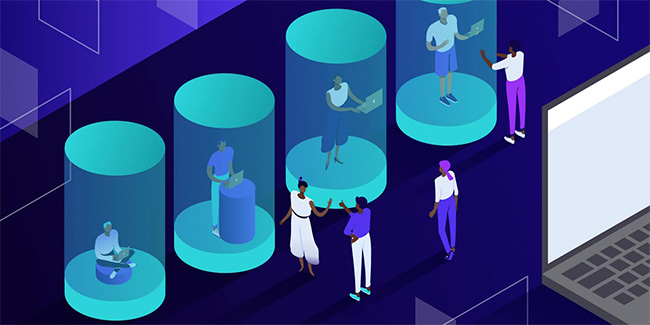

Climbing the Ranks: A Developer’s Growth with Introduct


At Introduct, we recognize a key moment in a coder’s life. It is when they transition from junior developer to senior developer. This path is full of challenges and opportunities. It represents personal growth and development of technical skills, leadership qualities, and collaboration abilities. In this article, we will look at some of the main differences between a junior developer and a senior developer. We’ll discuss the skills needed for this jump. You can take this journey without facing burnout along the way.
Understanding the Roles
A junior developer is usually new to the profession. They are often fresh graduates with fundamental programming skills. They work on projects by constantly learning from their senior colleagues. A senior developer has experience in the field. They handle project leadership responsibilities and mentor junior team members. This distinction sets the stage for growth. Any aspiring developer should strive for this path.
Progression: Why It Matters
Going from junior to senior developer involves more than just a title change, with increased responsibilities and opportunities. Senior developers are not only better coders, but they are also problem solvers and mentors who drive innovation and progress within organizations. These factors often go hand in hand with higher earning potential and greater job satisfaction. At Introduct, we believe this nurturing of the progression at all points is key to building a robust development team.
Key Differences: What Sets Them Apart?
Technical Capability
One of the most notable differences lies in technical proficiency. Senior developers have advanced mastery of the language, stacks, and other tools to build highly complex but scalable solutions through innovation. They are capable of decomposing complex problems into manageable problems by making light-weight enlightening architecture decisions to enhance performance and sustainability. Junior developers remain busy with the implementation of features; for debugging, they will rely on somewhat simpler techniques.
Problem-Solving Skills
What differentiates senior developers is, for sure, their ability to solve very complex technical problems. While junior developers might shy away from complex problems, senior developers look for them, using their experience to find adequate solutions. Equally important, senior developers do a great job of identifying risks well in advance and taking steps to mitigate them so that timelines are met with fewer disruptions.
Developing Leadership and Collaboration Skills
A critical aspect of becoming a senior developer involves honing leadership and collaboration skills. They would be mentoring people, creating an atmosphere of learning within the teams, clearly communicating complex technical concepts to cross-functional teams, and bridging the gap between technical and non-technical stakeholders.
Emphasizing Code Quality
Writing clean and maintainable code is a characteristic of a senior developer. Following coding standards and best practices is crucial; these practices ensure coherence in the codebase and therefore easy collaboration. Regular code reviews and self-reviews ensure high-quality code and continuous improvement in the team.
The Path Forward: How to Make a Successful Transition
During the journey from junior to senior developer, they would want to try the following:
- Commit to Lifelong Learning: Devote time to improving your technical skills. Workshops, online courses, and reading industry blogs will keep you abreast of the latest about emerging technologies.
- Work on Personal Projects: You can apply yourself to your personal or open-source projects, being in a position to work with other people on those projects, hence gaining practical experience that comes out to be priceless in your career.
- Seek Mentorship: Getting yourself a mentor will really change lives. Mentors give insights, guidance, and encouragement to overcome obstacles and develop your skills further.
- Take Initiative: Avail yourself of opportunities to lead projects in whatever small way. Proactively identify areas for improvement and suggest solutions for the same, showing your commitment toward the success of the team.
- Soft skills, and once again soft skills: Focus on improving your communication and collaboration skills. Communication is about how well a team functions and how well project management is carried out.
Conclusion
Growth from a junior to a senior developer is a fulfilling process, complemented by commitment, continuous learning, and readiness for an embraced challenge. At Introduct, supporting developers throughout their careers is something we care about. Invest in your growth and in the culture of mentorship that will enable you to make an enriching transition into being a senior and contribute value inside and outside your organization to the broader community of developers. Enjoy the journey and don’t ever stop wondering. Becoming is as important as being a senior developer.
More Articles

Best practices for continuous integration and deployment Best practices for continuous integration and deployment
Have you ever wondered what's beneath successful CI/CD optimization? Central to this transformative approach is DevOps. It is a kind of philosophy that encourages collaboration, communication, and integration between developers and IT operations.

Improving Code Quality and Maintainability: Essential Tips for Developers Improving Code Quality and Maintainability: Essential Tips for Developers
When dealing with coding, one of the most important things to consider is not just functionality, but also improving code quality and maintainability! At Introduct, we emphasize not only making the code work but also the quality of the code.
